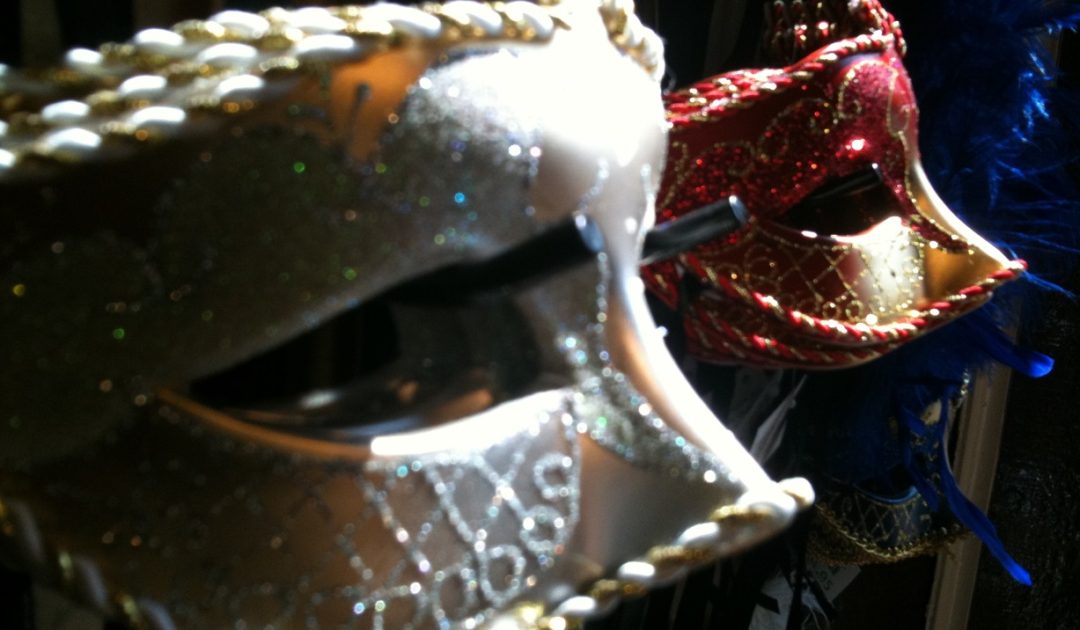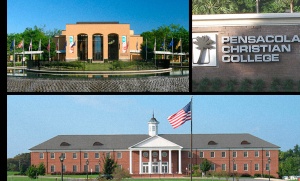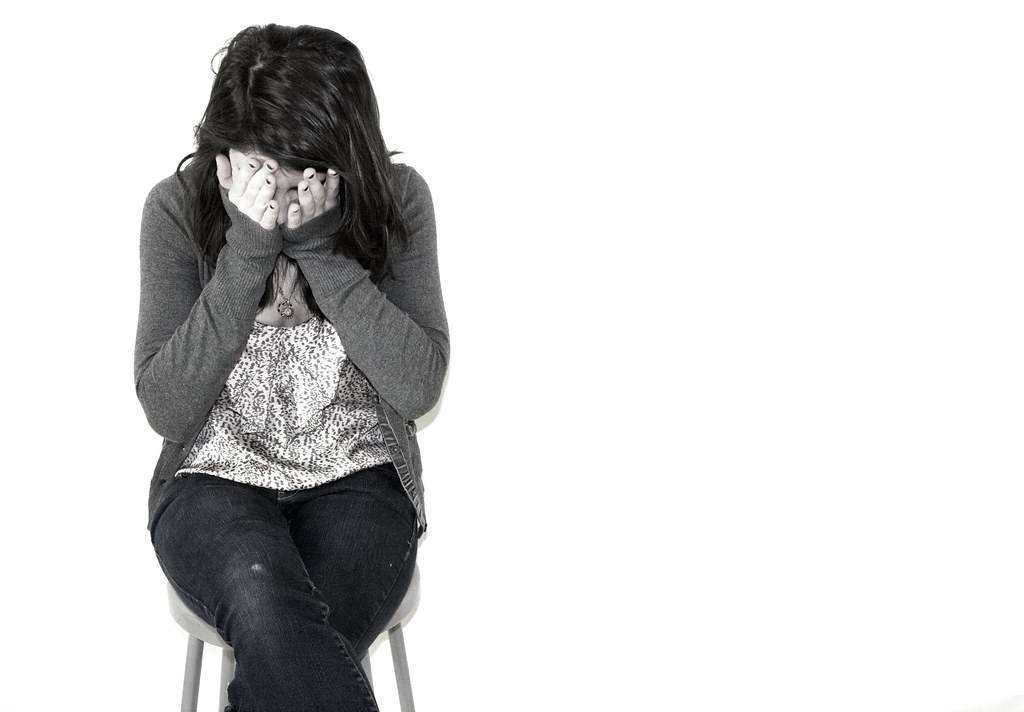Last year, I wrote a piece that condemned Pensacola Christian College for its habit of expelling rape victims for being “fornicators” or “liars.” It went viral, and now I consistently get people writing to me for advice. Some are from teenagers wanting to know how deep the problems go, some are from parents who are wondering if they should send their children there, some are from people trying to convince their loved ones not to go.
My answers have been consistent: I tell each of these people to ignore a lot of what they’ve heard about PCC, even from my own blog. Yes, the rules are completely and totally jacked. Some of the rules seem insane. Yes, it’s an extremely legalistic place. Yes, the administration has a well-deserved reputation for treating their students terribly.
However, none of those things are the real problem with PCC. The real problem is that you will not receive even a passably adequate education– and since that’s the primary reason for shelling out thousands of dollars for college, that should be the way to evaluate an institution of higher education.
1) They are accredited. Sort of. But not in the way you think.
When I attended, PCC had no accreditation, and they were extremely proud of that fact. They had no interest in accreditation, because they refused to be held accountable by any outside body that could bully them into giving up their “standards.” This meant that no student could get FAFSA, and many other places that offer student financial aid wouldn’t qualify you. It also meant that no one qualified for educational tax credits.
Most of that hasn’t changed. PCC is technically accredited now, but by the Transnational Association of Christian Colleges and Schools. If you look at the list of colleges that they’ve accredited, it becomes obvious fairly quickly that TRACS is a joke. They’re a rubber-stamping agency for conservative and fundamentalist Christian colleges that want to say they’re “accredited” but still go right on with business as usual. I know some of the people who go around “evaluating” these institutions for TRACS, and, trust me, they’re all in bed together.
They did make a few slight changes. They told PCC that forbidding their students from using Facebook and Twitter was a bit overboard. It’s also important to note that PCC makes it clear that they are not licensed by the state of Florida, nor do they wish to be.
2) They do not allow any form of open, reasoned discourse.
This is most obvious in that it is absolutely forbidden for students to either hold any form of public demonstration or create or sign a petition. Those two things are some of the gravest infractions any students can commit. There is a “student government,” but the officers that students elect do nothing more than put together skits that they perform in front of the student body a few times a semester– skits that are vetted extremely carefully by people in the administration. Dale Fincher was Student Body President, and he has some harrowing stories about the brutal questioning he was put through by doing his best to simply be encouraging.
3) Questioning any of the school’s ideologies could get you fired or expelled.
I’ll just share two examples: one of my professors was fired after a student asked him a question in class and he answered it honestly. The question: “What does Calvinism teach?” The answer: a brief summary of TULIP. After that happened, I approached a professor of mine about the nature of the grammar in the Gospel of Mark, and it didn’t take me long to realize that I’d just asked a question that could get him fired if he was honest.
For an Old Testament Survey class, we were required to read and “write a critique of” a dissertation on why the King James Bible is the Only True Bible that Christians Should Read: All Other Versions are Evil. I was pro-King James-only at the time, and was familiar with the arguments– and I thought that the argument was incredibly weak and filled with shoddy scholarship and lies. Since the homework assignment was to write a critique, I wrote one, taking the dissertation to task for presenting such a poor argument when many other better ones could be made.
I was called up to Student Life– the disciplinary branch of the administration– and interrogated and lectured. Even after I explained that I agreed with them, they continued to bludgeon me. About a homework assignment where I disagreed with something the school required its students to read.
4) Students are not taught critical or independent thinking.
While I was there I never experienced –not once in four and a half years– a “classroom discussion.” Every class I took, every day, for nine semesters, was lecture-based. We came, we sat in chairs, we took notes, and we left. Lather, rinse, repeat. There was never anything else. I was an Secondary Education major, so I even got the rationale for this: a classroom discussion made the learning environment too “student-centered,” and that was not to be countenanced. “Student-centered” or “student-directed” anything is of the devil.
I didn’t even realize this was a problem until I was in graduate school. Granted, graduate school is different from undergrad, and there’s a different dynamic between professor and student. However, I went to grad school at Liberty University and my peers were all very shocked to learn that a teacher had never once even asked for my opinion on something. I was to essentially find and then read aloud some notes I’d taken in previous lectures (or simply recall them from memory), but I never had the experience of a professors asking an open-ended question where the words hadn’t already been handed to me.
Students learning to think for themselves? To reason, and then articulate their own opinions? The horror.
5) They are simply not qualified to be an institute of higher education.
Out of almost 120 full-time faculty members, fifteen have terminal degrees in their field of study. Many of those MFAs and PhDs were granted by Pensacola Christian College. At a time when PCC was accredited by nothing. They literally made up their own degrees– licensed and accredited by no one– and are now using those “degrees” to pretend as if they have a semblance of respectability.
This next thing makes me laugh– the textbooks used in many of the required general education courses are the same ones they use in their high school. The book I bought for HI 101 and 102? The same one I’d used as a homeschooler in tenth grade. The anthologies we used for American and English Literature? Hardcover versions of the books I’d used in 11th and 12th grade with some of the artwork removed.
When I began graduate study, I realized that I had not been equipped to handle to rigors of my program. At all. On any level whatsoever. And I wasn’t even at some prestigious university– I was at another conservative Christian college, for crying out loud. I was so upset I called the Dean of English at PCC to ask why they hadn’t bothered preparing me for grad school in any basic, fundamental way. Why had I never even been shown– once— how to write following MLA guidelines? Why did they never even breathe the words literary theory? Why had I never even heard of Jacques Derrida? Why had not a single literature class I’d ever taken required me to read anything written by someone born after 1857? His answer: they felt that none of that was necessary– in fact, they saw those things as actively harmful and “detrimental to the program.”
~~~~~~~~
In conclusion, Pensacola Christian College does not care about education. They are there to indoctrinate, and absolutely nothing more.











